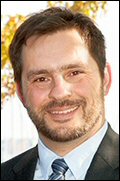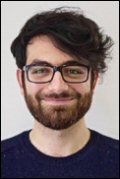EDITORIAL
ReSMiQ’s management is pleased to present to you the SIGNAL newsletter for the month of December 2023. It will henceforth be published quarterly. As before, you will find upcoming activities organized by members of our group as well as training activities held during the year. Furthermore you will find recent information on the achievements and successes of our researchers and a list of recent publications of which they are co-authors. Good reading!
Innovation Day (RID) 2024
The executive committee has not yet decided where the next edition of the JIR will be held in 2024. This is why we are calling on all members of our cluster who would be interested in organizing it. There is still time to submit your application until December 11. Contact the coordinator (eric.legua@resmiq.org) for details.
New members
The recent years have been prolific in terms of recruiting new members. We are pleased to announce that ReSMiQ has several new members since the renewal of our grant for strategic cluster from the FRQNT. They are Professor Audrey Corbeil Therrien and Professor Marc-André Tétreault from the Département de génie électrique et de génie informatique of the Université de Sherbrooke, Professor Raphaël Trouillon from the department of electrical engineering at Polytechnique Montréal, Richard Al Hadi from the department of electrical engineering at the École de Technologie Supérieure (ÉTS) and finally Messaoud Ahmed Ouameur from the department of electrical engineering and computer engineering at the University of Quebec at Trois-Rivières (UQTR).
 Audrey Corbeil Therrien (Université de Sherbrooke) is an assistant professor in the department of electrical engineering and computer engineering at the University of Sherbrooke (Quebec, Canada). Specializing in intelligent real-time acquisition systems for radiation detectors, she developed her expertise within the framework of instrumentation projects for nuclear medical imaging in Sherbrooke. She has several years of experience in X-ray detectors. radiation and their acquisition systems, in medical imaging (Positron emission tomography), X-ray free electron lasers (Serial crystallography) and neutrino detectors (Liquid xenon time projection chamber). Her research program, funded by a Canada Research Chair in embedded real-time intelligence for ultrafast flow detectors aims to design intelligent acquisition systems capable to process and analyze data in real time and in a delocalized manner. It is already developing various applications in collaboration with several teams, including the SLAC National Accelerator Laboratory (X-ray detectors), Los Alamos National Laboratory (X-ray camera). She is also part of several conference committees and was co-chair of the IEEE Nuclear Science Symposium 2023. She is strongly involved in the promotion of technical and scientific careers for minorities in collaboration with the University of Sherbrooke and other institutions. She is the recipient of several awards, including the IEEE Glenn F. Knoll Graduate Educational Grant in 2017 and the Best Thesis Prize in Science and Engineering from the University of Sherbrooke in 2019. She recently received the Honoris Genius – Relève of the OIQ.
Audrey Corbeil Therrien (Université de Sherbrooke) is an assistant professor in the department of electrical engineering and computer engineering at the University of Sherbrooke (Quebec, Canada). Specializing in intelligent real-time acquisition systems for radiation detectors, she developed her expertise within the framework of instrumentation projects for nuclear medical imaging in Sherbrooke. She has several years of experience in X-ray detectors. radiation and their acquisition systems, in medical imaging (Positron emission tomography), X-ray free electron lasers (Serial crystallography) and neutrino detectors (Liquid xenon time projection chamber). Her research program, funded by a Canada Research Chair in embedded real-time intelligence for ultrafast flow detectors aims to design intelligent acquisition systems capable to process and analyze data in real time and in a delocalized manner. It is already developing various applications in collaboration with several teams, including the SLAC National Accelerator Laboratory (X-ray detectors), Los Alamos National Laboratory (X-ray camera). She is also part of several conference committees and was co-chair of the IEEE Nuclear Science Symposium 2023. She is strongly involved in the promotion of technical and scientific careers for minorities in collaboration with the University of Sherbrooke and other institutions. She is the recipient of several awards, including the IEEE Glenn F. Knoll Graduate Educational Grant in 2017 and the Best Thesis Prize in Science and Engineering from the University of Sherbrooke in 2019. She recently received the Honoris Genius – Relève of the OIQ.
 Marc-André Tétreault (Université de Sherbrooke) specializes in distributed and real-time systems on FPGAs and dedicated integrated circuits. He developed his expertise within the framework of instrumentation projects for nuclear medical imaging in Sherbrooke, and more recently during my postdoctoral fellowship at Massachusetts General Hospital/Harvard Medical School. He has contributed to the development of numerous distributed acquisition systems with real-time data processing, to related projects as well as to multidisciplinary projects in related fields such as molecular imaging by infrared fluorescence and instrumentation for quantum physics. His research program aims to explore liquid xenon for 10 picosecond time-of-flight PET imaging, through my involvement in the Light only Liquid Xenon collaboration (LoLX, McGill, Carleton, TRIUMF, UBC). This program mainly aims at the modeling of ultrafast digital detectors in the context of LoLX, their projection towards a xenon-based scanner, and the development of prototypes of acquisition systems applicable to both contexts. He works for the development or reappropriation of algorithms for the distributed analysis of data generated by detectors in medical imaging, as well as for the development of cold electronics (liquid xenon and quantum instrumentation).
Marc-André Tétreault (Université de Sherbrooke) specializes in distributed and real-time systems on FPGAs and dedicated integrated circuits. He developed his expertise within the framework of instrumentation projects for nuclear medical imaging in Sherbrooke, and more recently during my postdoctoral fellowship at Massachusetts General Hospital/Harvard Medical School. He has contributed to the development of numerous distributed acquisition systems with real-time data processing, to related projects as well as to multidisciplinary projects in related fields such as molecular imaging by infrared fluorescence and instrumentation for quantum physics. His research program aims to explore liquid xenon for 10 picosecond time-of-flight PET imaging, through my involvement in the Light only Liquid Xenon collaboration (LoLX, McGill, Carleton, TRIUMF, UBC). This program mainly aims at the modeling of ultrafast digital detectors in the context of LoLX, their projection towards a xenon-based scanner, and the development of prototypes of acquisition systems applicable to both contexts. He works for the development or reappropriation of algorithms for the distributed analysis of data generated by detectors in medical imaging, as well as for the development of cold electronics (liquid xenon and quantum instrumentation).

Raphaël Trouillon (Polytechnique Montréal) joined the Department of Electrical Engineering at Polytechnique Montréal in January 2021 as part of a TransMedTech Research Chair. His research mainly focuses on the development of analytical chips for the study of cellular chemistry (bioelectrochemistry, neurochemistry, multicellular models) and draws on techniques from microelectronics (PDMS lithography, microfabrication, physical characterization). He is currently setting up a research program focused on intelligent chips on paper for biomedical applications and based on printed electronics technologies (printing, cutting, screen printing, etc.). As part of this work, he began a collaboration with Ricardo Izquierdo (ETS, RESMIQ member) on paper/carbon hybrid materials.
 Richard Al Hadi (ÉTS) joined the electrical engineering department at LACIME in 2022, and is a leading expert in the field of radio frequencies which aligns with “Microsystems for information and telecommunications technologies” research theme of the cluster. Since his arrival at ÉTS, he has started a collaboration with Professor Nabki for the creation of innovative hybrid MEMS/RF sensors. He sees possible future collaborations within ReSMiQ with professors Boukadoum (UQAM) on integrated circuits for artificial intelligence applications and Vaisband (McGill) on the heterogeneous integration of integrated circuits.
Richard Al Hadi (ÉTS) joined the electrical engineering department at LACIME in 2022, and is a leading expert in the field of radio frequencies which aligns with “Microsystems for information and telecommunications technologies” research theme of the cluster. Since his arrival at ÉTS, he has started a collaboration with Professor Nabki for the creation of innovative hybrid MEMS/RF sensors. He sees possible future collaborations within ReSMiQ with professors Boukadoum (UQAM) on integrated circuits for artificial intelligence applications and Vaisband (McGill) on the heterogeneous integration of integrated circuits.
 Messaoud Ahmed Ouameur (UQTR) joined the University of Quebec at Trois-Rivières in 2018 in the department of electrical and computer engineering. In 2022, he obtained the NSERC Discovery Grant for his Explainable AI (XAI) model for a research program on radio access networks. He also works on embedde AI for the Internet of Things and reconfigurable smart surfaces. His research also includes VLSI, embedded systems, parallel programming, computer architectures and wireless communication. During his research activities he collaborated with Professor Roy (University of Sherbrooke) while working on radio systems at Nutaq Innovation, then thanks to the MITACS acceleration program he also collaborated with Professor Fortier (Laval University) as well as Professor Massicotte (UQTR). He also interacted with Professor Zhu (Concordia).
Messaoud Ahmed Ouameur (UQTR) joined the University of Quebec at Trois-Rivières in 2018 in the department of electrical and computer engineering. In 2022, he obtained the NSERC Discovery Grant for his Explainable AI (XAI) model for a research program on radio access networks. He also works on embedde AI for the Internet of Things and reconfigurable smart surfaces. His research also includes VLSI, embedded systems, parallel programming, computer architectures and wireless communication. During his research activities he collaborated with Professor Roy (University of Sherbrooke) while working on radio systems at Nutaq Innovation, then thanks to the MITACS acceleration program he also collaborated with Professor Fortier (Laval University) as well as Professor Massicotte (UQTR). He also interacted with Professor Zhu (Concordia).
We wish everyone to undertake fruitful collaborations with ReSMiQ researchers and that their presence within the group contributes significantly to its influence within the scientific community on micro-systems at the national and international level.
NEWS FROM OUR MEMBERS
Achievements
Professor Audrey Corbeil Therrien of the Université de Sherbrooke received the Honoris Genius – Relève from the OIQ. This prize highlights the determination, dynamism and contribution of the next generation in the professional and community fields.
Professor Boris Vaisband of McGill University received the best poster award for the following article: S. Dayo, A. Saeed Monir, M. Karimi, and B. Vaisband, “Statistical Weight Refresh System for CTT-Based Synaptic Arrays,” Proceedings of the ACM/IEEE Great Lakes Symposium on VLSI, pp. 213-214, June 2023.
Professor Benoit Gosselin obtained NSERC Alliance funding ($300,000) for the project “Digital bio-implant for preclinical research on respiratory and cardiovascular diseases” in partnership with SCIREQ/EMKA Technologies.
RESMIQ’S ACTIVITIES
 Full paper submission deadline: February 1, 2024
Full paper submission deadline: February 1, 2024
Tutorial submission deadline: February 1, 2024
Special Session submission deadline: February 1, 2024
More details
SEMINARS TO REVISIT
 Designing Robust DNN Models That Exploit Energy-Reliability Tradeoffs
Designing Robust DNN Models That Exploit Energy-Reliability Tradeoffs
by François Leduc-Primeau, Polytechnique Montréal, Québec, Canada
Initially held on September 26, 2023
Abstract & biography / View the recording

Rédaction d’une demande de bourse gagnante
by Audrey Corbeil Therrien, Université de Sherbrooke, Québec, Canada
Initially held on January 17, 2023
Abstract & biography / View the recording
 What do neutrino physics, dark matter searches, medical imaging and quantum key distribution instrumentation have in common?
What do neutrino physics, dark matter searches, medical imaging and quantum key distribution instrumentation have in common?
by Jean-François Pratte, Institut interdisciplinaire d’innovation technologique 3IT, Université de Sherbrooke, Québec, Canada
Initially held on June 06, 2021
Abstract & biography / View the recording
NEWS FROM THE NET
3D-STACKED CMOS TAKES MOORE’S LAW TO NEW HEIGHTS. When transistors can’t get any smaller, the only direction is up. More details…
IS THIS THE BEST SEMICONDUCTOR EVER FOUND? Cubic boron arsenide may in fact even be the best possible one. More details…
IBM Debuts Brain-Inspired Chip For Speedy, Efficient AI. A brain-inspired chip from IBM, dubbed NorthPole, is more than 20 times as fast as—and roughly 25 times as energy efficient as—any microchip currently on the market when it comes to artificial intelligence tasks. More details…
MICRO 4D PRINTING BUILDS ON PROGRAMMABLE MATTER. These dynamic microstructures, courtesy of some clever chemistry, can be adapted on demand. More details…
DRAM’S MOORE’S LAW IS STILL GOING Strong Micron Technology pushes ahead with 35% density boost and does it without advanced lithography tool. More details…
NANOWIRE SYNAPSES 30,000X FASTER THAN NATURE’S. This way to artificial, ultraefficient, optoelectronic neurons? More details…
E-SKIN SENSORS GO CHIPLESS AND BATTERYLESS. Flexible, wearable devices promise VR and medical-monitoring applications. More details…
THIS CHIP COULD REPLACE A THOUSAND LASERS. Frequency combs are key to optical chips that could cut Internet power consumption. More details…
SIGNAL is the main monthly information medium of the Microsystems Strategic Alliance of Québec (ReSMiQ). This newsletter aims to be an active link between the members of ReSMiQ and all individuals who have an interest in research and innovation in microsystems. We commit ourselves to promote in it our members’ research and increase ReSMiQ’s visibility.
ReSMiQ is a group of researchers in an interuniversity research center that can count on the support of the Fonds de recherche du Québec – Nature et technologies (FRQNT) and ten (10) Quebec universities involved in microsystems research whose mandate is to serve its members and to foster conditions for graduate student researchers to go to the end of their abilities to innovate.


